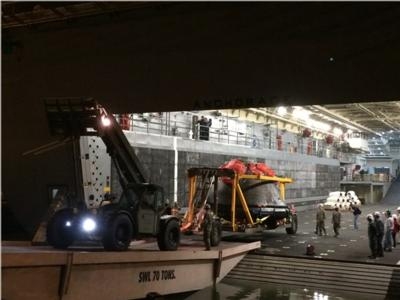Thu, Dec 11, 2014
Advertisement
More News
 ANN's Daily Aero-Term (05.07.25): Terminal Radar Service Area
ANN's Daily Aero-Term (05.07.25): Terminal Radar Service Area
Terminal Radar Service Area Airspace surrounding designated airports wherein ATC provides radar vectoring, sequencing, and separation on a full-time basis for all IFR and participa>[...]
 ANN's Daily Aero-Linx (05.07.25)
ANN's Daily Aero-Linx (05.07.25)
Aero Linx: Utah Back Country Pilots Association (UBCP) Through the sharing experiences, the UBCP has built upon a foundation of safe operating practices in some of the most challen>[...]
 Classic Aero-TV: Anousheh Ansari -- The Woman Behind The Prize
Classic Aero-TV: Anousheh Ansari -- The Woman Behind The Prize
From 2010 (YouTube Edition): Imagine... Be The Change... Inspire FROM 2010: One of the more unusual phone calls I have ever received occurred a few years ago... from Anousheh Ansar>[...]
 NTSB Prelim: Bell 206B
NTSB Prelim: Bell 206B
(Pilot) Felt A Shudder And Heard The Engine Sounding Differently, Followed By The Engine Chip Detector Light On April 14, 2025, about 1800 Pacific daylight time, a Bell 206B, N1667>[...]
 Airborne-NextGen 05.06.25: AF Uncrewed Fighters, Drones v Planes, Joby Crew Test
Airborne-NextGen 05.06.25: AF Uncrewed Fighters, Drones v Planes, Joby Crew Test
Also: AMA Names Tyler Dobbs, More Falcon 9 Ops, Firefly Launch Unsuccessful, Autonomous F-16s The Air Force has begun ground testing a future uncrewed jet design in a milestone tow>[...]
blog comments powered by Disqus




